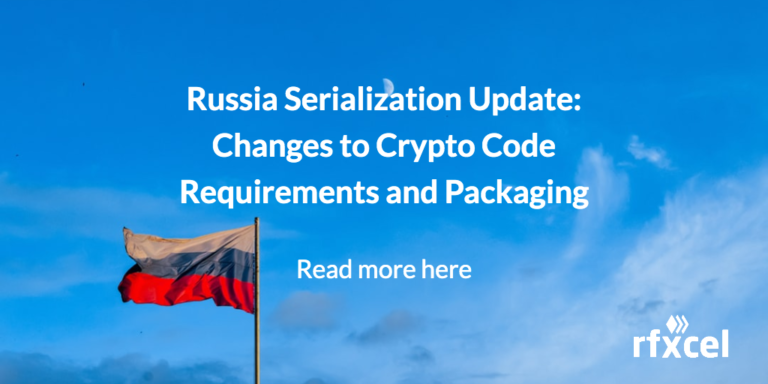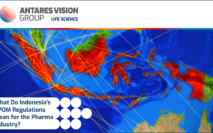Note: This is an update to a September 2018 blog post about Russian serialization requirements.
Russia has made some important changes to its pending pharma serialization regulations, set to take effect in January 2020. Decree No. 1118 of August 30 amends the procedure for applying drug labeling codes.
The most significant change concerns the length of the crypto code required on all medicine packaging: It has been cut in half, from 88 to 44 characters. The decree also removes the option of adding a batch number and expiry date. The upshot is that the data matrix will be less unwieldy for packaging and labeling processes without sacrificing security.
Russia’s Federal Service for Surveillance in Healthcare (Roszdravnadzor) developed the methodology for applying abbreviated codes. More than 30 pharmaceutical companies have tested applying revised codes, demonstrating that they simplify the process of setting quality and print speed parameters.
The second change concerns packaging logistics. Russian regulations stipulate that packaging must have “inseparability.” In other words, you should not be able to remove a code from packaging without damaging the packaging. Under the new guidelines, companies can opt to affix codes on packaging at a printing facility instead of on the production line.
Decree No. 1118 also explains why codes may be withheld from a license holder. These include if Russia’s track and trace system does not contain information about a drug or if a serialized Global Trade Item Number (GTIN) for which a crypto code is requested has already been used. The decree also provides reasons why codes would be canceled or invalidated.
Dmitry Alkhazov, Director General of Operations at CRPT, which is responsible for Russia’s Drug Circulation Monitoring System, said these changes improve the country’s serialization measures and “ensures [the] stability” of crypto codes.” He also said the decree was the result of coordinated efforts among stakeholders. “The entire regulatory framework is ready to launch the mandatory labeling of drugs. The development and adoption of these changes is the result of a constructive dialogue between the industry, the regulator, and operator[s].” Read more here.
Contact us today if you have any questions about Russia’s serialization regulations. Our team of experts working in Russia continues to grow, and they can help ensure you’re ready for January 2020, including the revised crypto code guidelines.
Get access to Serialization Requirements in Russia Webinar:





